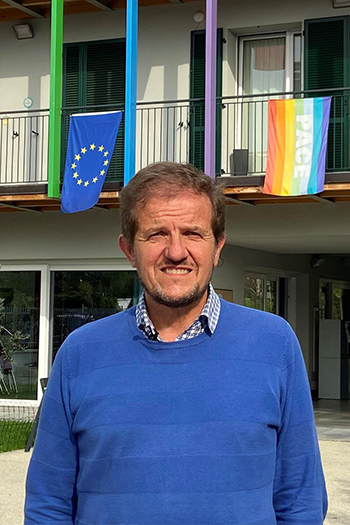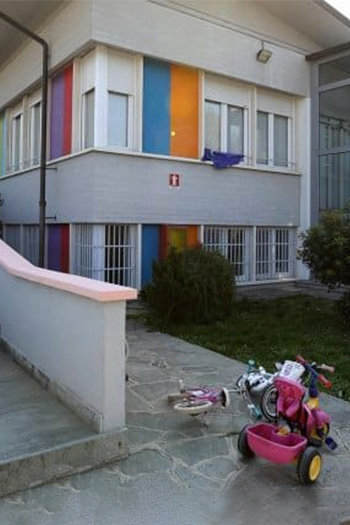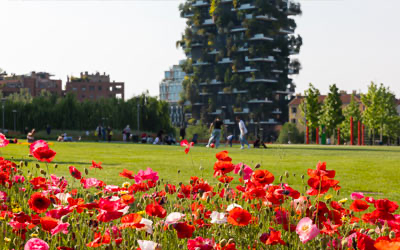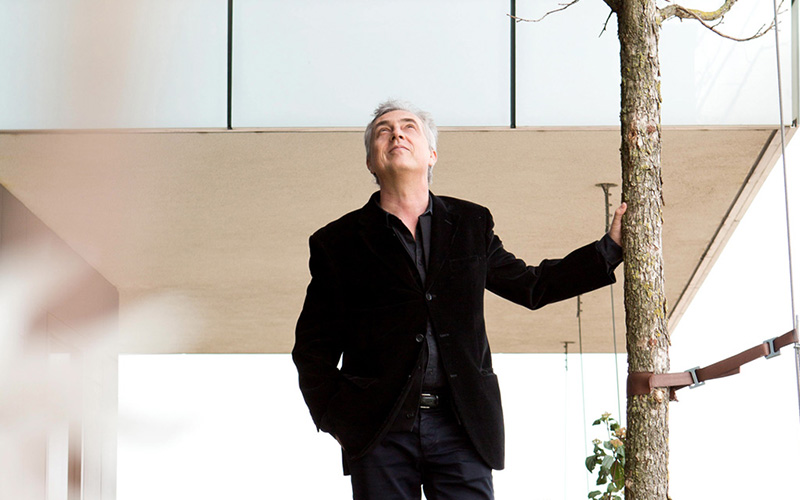In the popular imagination, there is still a strong distinction between avant-garde and innovative neighbourhoods, attractive and full of opportunities within what is defined as the “city centre”, and suburban areas, regarded as exclusively residential, sometimes characterised by complex social situations.

Urban Stories videopill – Fondazione Arché
Milan is no exception. Porta Nuova and CityLife, with their icons and green spaces, hubs for large companies and symbols of a high-energy city coveted by tourists and investors, but also Brera, Duomo or the Navigli, are surrounded in every direction by areas that need more opportunities to integrate themselves better into the system and emerge within the urban fabric. Quarto Oggiaro is one of the best-known examples.
Areas that are distant not only geographically, but sometimes also socially, that need to communicate and relate to each other in order to both be part of an inclusive, interconnected and virtuous community definitively overcoming the twentieth-century distinction between centre and suburbs.
See also: Connected and inclusive: the features of future cities
According to Manfredi Catella, CEO of COIMA, “this is where the need to connect Milan’s neighbourhoods by creating social bridges capable of generating new opportunities and benefits for the city stems from.”

Padre Bettoni, President & Founder
of Fondazione Arché
People are the only ones able to create these connections, which can also prove fruitful from other points of view, such as the environment and production. “Developing the human dimension is at the heart of the partnership with COIMA,” the words of Father Giuseppe Bettoni, the president and founder of, as well as driving force behind, the Fondazione Arché, a foundation that for more than thirty years has been dealing with complex situations related to offering support to women with children who have experienced the drama of gender violence or endured the trauma of migration. “Together we have chosen to create a social platform that connects two apparently distant settings in Milan, with the aim of mapping out shared trajectories between private, public and third sectors, involving companies that have a social vocation and building the common good together.
A project that is social and at the same time urban, that focuses on work as an opportunity for personal and social redemption for people with a difficult past and who often imagine that their future is already written without too many ambitions and aspirations. “These women are much more than their mistakes, which often only translate into having trusted the wrong people,” comments Father Bettoni, “and that is why at Fondazione Arché we are committed to ensuring that these mothers learn to discover potential that they often do not even imagine they have and to believe in themselves. Within this context, the partnership with COIMA is crucial in order to enable these women to enhance their quality of life.”
A protocol has actually been signed between COIMA and Fondazione Arché in an attempt to define an integrated model to offer women in the care of Fondazione Arché the opportunity to learn a trade, training while working in contact with professionals who are prepared and available for mentoring and coaching.
“In addition to providing women with a roof over their heads via social housing projects, what is important to us is to accompany them on a path towards autonomy and in planning their future, and we are happy to have found a partner to count on in an entity that was immediately attentive and willing to welcome mothers and help them grow professionally, providing them with the skills and tools to do so and offering job opportunities in Porta Nuova,” adds Father Bettoni.
See also: Investing in the welfare of communities

Casa Arché
“We also want to get other companies in Porta Nuova involved in this project, which is aimed at people in fragile situations, and I am sure they will gladly accept this challenge,” interjects Catella. “We are proud to provide training for these women and to help them enter the world of work. Underlying this initiative is the belief that connections are Milan’s real strength,” continues Catella. “The city also benefits from exchanges and relations between people: connecting the productive areas or centres driving economic activity within the city with the suburbs means opening up the fabrics of the neighbourhood to virtuous connections, exchanges and knowledge not only in the productive sphere, but also on a social and cultural level.”
See also: Milan, development and opportunities
And so, while on one hand work can certainly transform a precarious situation and give these women a boost that goes beyond everyday life, linked to personal recognition, to “giving themselves value”, to being able to face the challenges of each day while looking to tomorrow with renewed confidence, the city can also seize the opportunity to become increasingly connected and inclusive and a place of integration and involvement, as well as a unique space where no distinctions apply and where only the wellbeing of the community counts.



